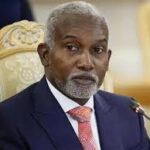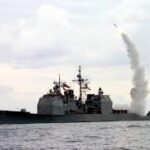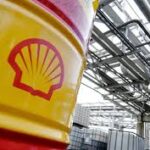In a major development for Nigeria’s energy sector, Dangote Petroleum Refinery is preparing to export 90,000 metric tonnes of gasoline to Asia—its first shipment of the product outside the West African market. This move marks a significant step in the company’s global expansion efforts.
According to a Reuters report, trading firm Mercuria is expected to load the gasoline cargo on June 22, extending the refinery’s footprint beyond Africa. Located in the Lekki Free Zone, Lagos, the 650,000 barrels per day facility has already supplied jet fuel to the United States and exported shipments to Singapore and Saudi Arabia.
The refinery, owned by billionaire Aliko Dangote, has also exported approximately 1.7 million barrels of jet fuel to key U.S. ports and sent two consignments to Saudi oil giant Aramco. In April, the refinery shipped a consignment of low-sulphur straight-run fuel oil (LSSR) to Singapore, signaling a shift toward Asia-bound energy exports.
The Organisation of Petroleum Exporting Countries (OPEC) in January noted that Dangote’s growing operations were beginning to disrupt Europe’s gasoline exports to Africa, a trade valued at $17 billion annually.
Meanwhile, back in Abuja, the Senate has given the Nigerian National Petroleum Company Limited (NNPCL) a one-week deadline to explain discrepancies exceeding N210 trillion uncovered in its audited financial statements from 2017 to 2023.
This directive followed a session of the Senate Committee on Public Accounts on Wednesday, where lawmakers interrogated NNPCL officials over irregular figures listed under “accrued expenses” and “receivables” in the reports. The company’s Chief Financial Officer, Mr. Dapo Segun, appeared alongside other senior executives.
Committee Chairman, Senator Aliyu Wadada, said the audit reports revealed N103 trillion in accrued expenses, including over N600 billion in retention fees, as well as legal and audit fees, all of which lacked corresponding documentation. The receivables section also reflected a matching N103 trillion without detailed breakdowns.
“The figures in the fresh document NNPCL submitted before the hearing contradict the ones in the audited accounts,” Wadada stated. “This is deeply troubling, especially with NNPCL preparing for an Initial Public Offering (IPO). Transparency is non-negotiable.”
The committee has issued 11 specific queries and demanded detailed written responses within seven days.
Wadada also pointed out inconsistencies between the financial records of NNPCL and its subsidiary, the National Petroleum Investment Management Services (NAPIMS). While NAPIMS claimed a profit of N9 trillion between 2017 and 2021, NNPCL recorded a loss of N16 billion for the same period.
He assured Nigerians that the Senate would ensure full accountability. “Every kobo in question will be thoroughly scrutinised,” he added, reinforcing the administration’s commitment to transparency under President Bola Tinubu’s Renewed Hope Agenda.









